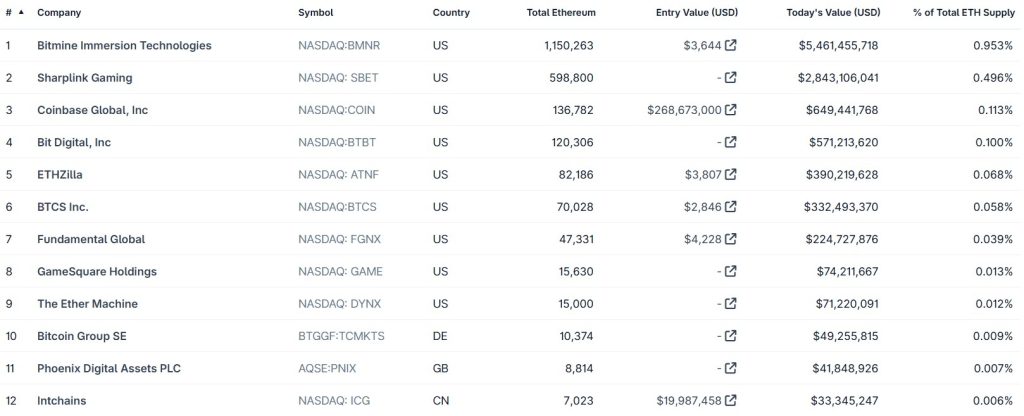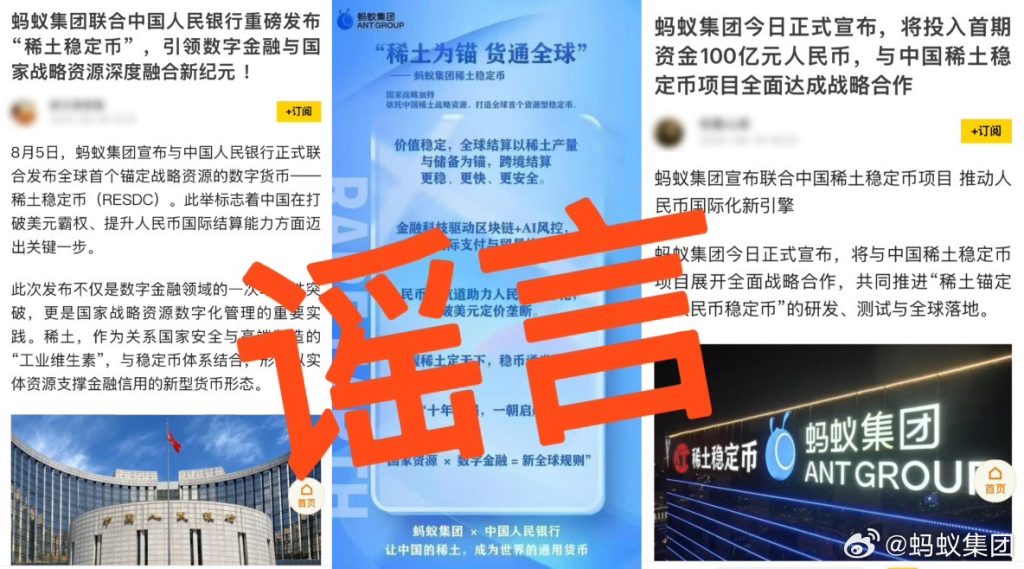South Koreans rally around Ethereum based stocks
South Korean retail investors are selling off their big tech shares such as Tesla and Alphabet in favor of Ethereum-related stocks, The Korea Economic Daily reported, citing data from the Korea Securities Depository.
Tesla has long been a fixture in the top net-buy rankings for Korean retail investors, but it was sold off in the past month with around 1 trillion won ($721.6 million) in net sales. Alphabet and Apple were also heavily sold, with net sales of about 230 billion won ($166 million) and 300 billion won ($216 million), respectively.
These retail investors are locally called “seohak ants.” Seohak translates to “Western learning,” but in domestic finance lingo, it refers to foreign stock investors. “Ants” is a local nickname for retail investors, alluding to their small size but large numbers compared to institutional whales.
According to the Korea Securities Depository, these ants have invested $269 million over the past month in BitMine, a Bitcoin mining and Ethereum treasury company that is now the largest publicly listed holder of ETH.

Excluding exchange-traded funds, half of the top seven net-buy stocks by ants during that period were cryptocurrency-related companies: Coinbase, Robinhood and Sharplink Gaming, the second-largest public ETH holder.
The value of Ethereum holdings by public companies have recently surged, inspired by the success of Bitcoin treasury firms — a playbook popularized by Michael Saylor and MicroStrategy. Holding BTC or ETH has not only been beneficial to companies due to the appreciation of the cryptocurrencies, but has also lifted their share prices. At the time of writing, 18 public companies collectively hold 1.88% of Ethereum’s supply, according to CoinGecko data.
Vietnam state-backed bank to launch on crypto exchange

A bank founded by Vietnam’s defense ministry intends to launch its own cryptocurrency exchange.
Military Bank (MB Bank) signed a memorandum of understanding with Dunamu, the operator of cryptocurrency exchange Upbit, to access the company’s South Korean exchange’s infrastructure, technology and regulatory compliance experience to establish its own exchange.
MB Bank, which was founded under Vietnam’s Ministry of National Defense in 1994, claims to be the fifth-largest bank in the country with total assets of around $50 billion.
If successful, it could become the first regulated crypto exchange in Vietnam, and comes as Vietnam preps the nation for a crypto push of its own during a global crypto regulations boom. In June, Vietnam’s National Assembly passed a law that brings cryptocurrencies under regulatory oversight.
The Law on Digital Technology Industry essentially legalized cryptocurrencies by legally recognizing two classifications: virtual assets and crypto assets.
Thai crypto companies catch strays in “mule account” crack down
Thailand cryptocurrency firms will share liability if their failure to follow official standards causes customer harm.
The Thai Securities and Exchange Commission (SEC) rolled out binding rules that put cryptocurrency exchanges and other digital asset businesses in the hot seat in a national crackdown on “mule accounts” — formerly legitimate financial accounts that have been rented out or sold for use in scams and money laundering.

Under the new framework, which took effect on Wednesday, crypto businesses must carry out Know Your Customer checks and share customer data with law enforcement. If a mule account is identified, crypto platforms must freeze them or refuse services.
The new rules create a “shared responsibility” regime in which financial institutions, payment providers, telecom companies, social media platforms and crypto firms can be held jointly liable for customer losses if they neglect to follow SEC-prescribed standards to prevent tech crime.
The SEC said crypto mule accounts have become a preferred tool for scammers as they are harder to trace than bank accounts. Between March and the end of June, authorities 29,000 crypto mule accounts have been frozen in Thailand, worth 186 million baht (around $5.7 million).
Individuals who rent out or sell mule accounts can face up to three years in prison or up to a 300,000 baht fine.
The watchdog added that anyone who rents out or allows their account to be used for tech crime can face up to three years in prison, a fine of up to 300,000 baht, or both.
Ant Group denies forming stablecoin partnership with central bank
China’s tech giants are continuing to fend off speculation that they plan to issue a yuan-pegged stablecoin.
Rumors circulating on social media and in some media reports have suggested that China may be preparing to approve a yuan-pegged stablecoin. The authorities have not confirmed such plans.
Interest in stablecoins has intensified following the rollout of Hong Kong’s new stablecoin regulations, which allow companies to apply for a license. Chinese e-commerce giant JD.com is reportedly among the applicants, and was also pushed to deny claims that it had already launched one.
Ant Group is the latest major tech firm to push back against similar rumors. The company dismissed reports that it had partnered with the People’s Bank of China and China Rare Earth Group to create a rare-earth-backed RMB stablecoin.
“Ant Group has never had any such plan with the mentioned institutions,” it said in a social media post on Monday.

Stablecoin enthusiasm in China has been running high, with researchers and academics — including those from top state-backed institutions — publishing recommendations and studies on the potential benefits of stablecoins. Regulators have reportedly intervened in recent weeks, urging the domestic market to halt research publications and seminars on the subject.


Yohan Yun
Bitcoin payday? Crypto to revolutionize job wages… or not
“Professionally, I am ‘all in’ on blockchain and digital assets. […] Throwing in all my other financial assets into the same bucket is very risky, and if things go badly, that would leave me without a backup plan.”
Read moreJameson Lopp: Skeptical of spot Ether ETFs, BTC price prediction dilemma: X Hall of Flame
Casa co-founder Jameson Lopp doubts the approval of any other crypto ETF in the near future: X Hall of Flame
Read moreBrandt says Bitcoin yet to bottom, Polymarket sees hope: Trade Secrets


